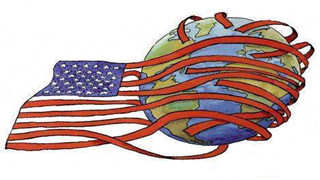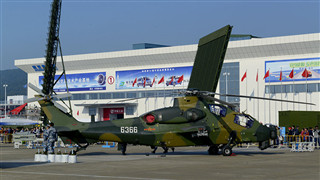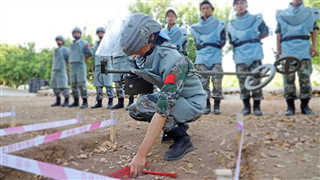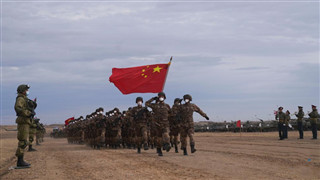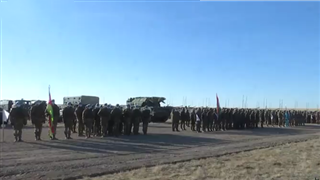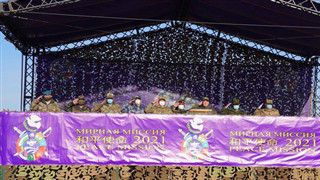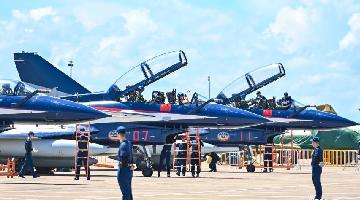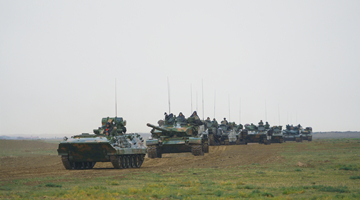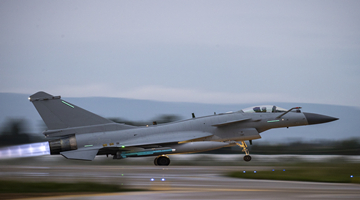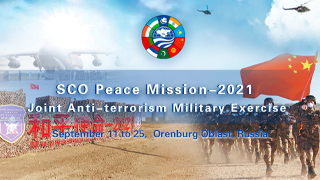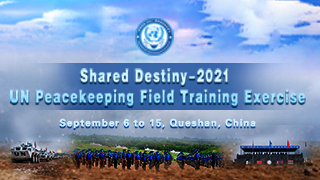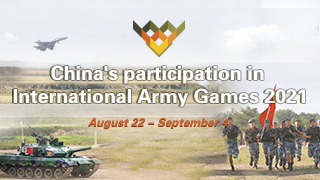By Da Zhigang
Former Japanese Prime Minister Shinzo Abe claimed in a recent interview that something is likely to happen in Taiwan soon that will cause immense consequences, with which he urged Japan to make strategic and military preparations, especially expediting the revision of Article 9 of the Constitution of Japan. This was not the first time that Abe played the Taiwan card. Now he chose to bring this up again in the home stretch of the Liberal Democratic Party’s election for two purposes – to pump up the right-wing’s support for Sanae Takaichi, who he also supported, and to free Japan from the righteous restriction imposed by the international community after WWII.
From Abe’s long reign to Yoshihide Suga’s short-lived term, Tokyo has never stopped creating topics on the Taiwan question and has constantly trampled on China’s sovereign redline on the island. It has taken Taiwan as a bargaining chip in its attempt to hype up the public opinions and international environment for Japan to lift the ban on its right to collective defense and send military forces overseas. In fact, Japan’s conservative forces are so keen on playing the Taiwan card partly because it is a traditional trick passed down from history, and partly because of their eager geopolitical plans and military ambitions.
First of all, Japan wants to break away from the restriction imposed by the post-WWII arrangement and international order. Japan under Abe’s rule turned increasingly rightist politically, and the false claims by politicians and the media made the people believe that they were the real victims of the war and that the post-WWII arrangement was an unjust one imposed by the winning party on the losing party.
Second, Japan wants to create the basis and public opinions for revising Article 9 of its Constitution. As the Japanese society gets more conservative about Article 9 in the background of the pandemic, Abe and other Japanese politicians, taking advantage of the people’s desire to live in a normal country, have kept urging them to abandon the self-criticizing view on history and recognize the external threats. As a result, revising Article 9 is getting more and more acceptable for Japanese society.
At last, Japan wants to free itself from military restrictions. The Constitution of Japan restricts the country from launching external wars, and Japanese politicians, represented by Abe, know very well that no breakthrough can be made from the perspective of “defense only”. Under such circumstances, the Taiwan question becomes the perfect excuse that can arouse tension among the people, secure more support from the US, and accelerate the lifting of military restrictions.
There are two reasons why Japan has followed the path of peaceful development and not run amuck in military development and lifting the ban on its right to collective defense for such a long time after WWII. For one, it is restricted by the Constitution, especially Article 9 stating that “land, sea, and air forces, as well as other war potential, will never be maintained. The right of belligerency of the state will not be recognized”. For the other, it is checked by surrounding countries and the international community. While peaceful and progressive forces within Japan are consistently resisting the countercurrent in the government, countries that used to be invaded by Japan, including China and ROK, are also countering its unending efforts to seek more military freedom.
But given the new and complicated changes in the geopolitical situation and the aggravation of major-power struggles, Abe and the like are getting closer to their goal of revising Article 9. Once the restriction is lifted, it’s imaginable that Japan is very likely to become the new unstable factor in East Asia and even the Indo-Pacific region. Once militarist and aggressive, the country has every possibility to once again become the source of regional conflicts.
While Japan is subtly testing the bottom line and quickening its steps to make the dangerous move, America’s connivance and even indulgence are worrying. As the US, Japan and Australia are ever more eager to gang up against China, Washington is more indulgent of Japan, an opportunity seized by Japan to free itself militarily more quickly. The Taiwan question is a wind vane that tests Japan’s intention of getting rid of the constitutional restriction and barometer that shows how far the US indulgence will go. Washington should think twice about what it’s doing, and Tokyo needs to stop walking down the wrong path before it’s too late.
(The author is director and researcher at the Institute of Northeast Asian Studies, Heilongjiang Provincial Academy of Social Sciences)
Editor's note: This article is originally published on huanqiu.com, and is translated from Chinese into English and edited by the China Military Online. The information, ideas or opinions appearing in this article do not necessarily reflect the views of eng.chinamil.com.cn.
